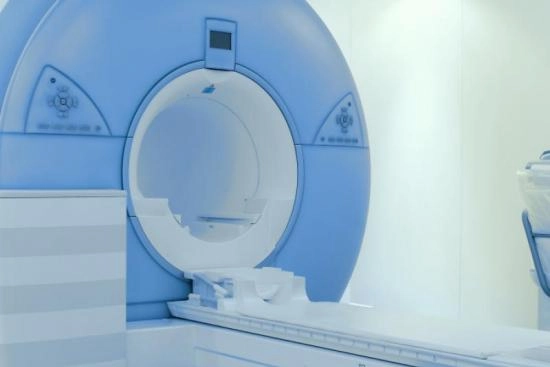Nuclear medicine in Turkey is a specialized branch of medicine that diagnoses and treats diseases by introducing small quantities of radiopharmaceuticals, (or radioactive materials). This branch of medicine allows investigations to be carried out using nuclear imaging tests.
The radioactive materials used make it possible to analyze both the structure and the functionality of organs or tissues, also managing to trace the cause of the disease in a non-invasive, painless, and safe way.
We're Here to Help.

People who want to:
- Diagnose or analyze a disease
- Locate and treat organ or tissue disease
- Bleeding
- Swelling at the injection site
- Allergic reactions to radiopharmaceuticals
- 93 %
What is nuclear medicine?
Nuclear medicine is a medical discipline that emerged in 1934 in which radioactive substances (radionuclides) and methods of nuclear physics are used to diagnose, locate and treat diseases or pathologies affecting organs or tissues.
Radionuclides have the distinction of delivering different types of radiation. This feature allows you to examine the performance of organs during their operation. It is also used to study, diagnose and monitor certain pathologies.
By relying on nuclear medicine, specialists can go beyond the stage of purely morphological imaging to obtain functional and metabolic imaging, to finely detect deep lesions, monitor their progression, and accurately guide surgical actions, as well as detect diseases at very early stages of their development. Nuclear medicine provides two-dimensional images, now three-dimensional images, that complement radiology, ultrasound, and MRI.
Nuclear imaging techniques in Istanbul Turkey
In Turkey, there are three nuclear imaging techniques to improve the effectiveness of the treatments adopted:
- Scintigraphy Gamma scan: a small amount of radioactive product called an intravenous tracer is injected. Once the injection is completed, the tracer settles on the structures of the organ and therefore diffuses signals called gamma rays. These are explored via a special device called a gamma camera, fixed in front of the area to be studied. Gamma-ray scans can then examine and analyze the functioning of organs through a gamma camera by providing a functional image.
- Positron Emission Tomography (PET): This nuclear imaging technique is based on the principle of scintigraphy. It consists in evaluating the metabolic activity of an organ in 3 dimensions thanks to the emission of positrons resulting from the administration of a previously administered tracer.
- Monophotonic Emission Tomography (SPECT): A series of images captures a movement or activity, for example, you can observe blood flow near the organ. The image is three-dimensional and allows us to visualize the functioning of the studied organ.
Reasons for using nuclear medicine
There are many reasons to perform nuclear imaging tests.
- Detect tumors.
- Determining the spread of cancer.
- Determining the effectiveness of cancer treatment.
- Diagnose inflammation.
- Check the pumping of the core.
- Check the structure or function of tissues or organs, such as the brain, thyroid, liver, heart, kidneys, bones, etc.
Side effects of nuclear medicine
Consultation with a nuclear medicine specialist carries a minimal risk of exposure to radioisotopes. The dose of radioactive material administered depends on the type of procedure being performed and the part of the body being examined. Possible side effects include bleeding, swelling at the injection site, or allergic reactions to radiopharmaceuticals, but these are extremely rare. In one of the best clinics in Istanbul Turkey, the medical team will explain these risks to you before the examination to help you make the right decision.
It should be noted that the doses of radioisotopes used in nuclear imaging tests are very minimal and do not introduce any risk or danger to health when these tests are performed occasionally and under the direction of expert surgeons. Please also note that in Istanbul, Turkey, the potential risks are reduced compared to the benefits of these examinations.
Consult an expert in Istanbul Turkey: Prices & clinics
Nuclear medicine is a well-developed medical specialty in Turkey. Indeed, Turquie Santé guarantees you medical assistance from the best doctors and specialists in nuclear medicine in Istanbul, Turkey. Our specialists work in nuclear medicine units (interns, nurses, cardiologists, endocrinologists, etc.) and in several outpatient clinics to provide the best possible care to patients.
Turquie Santé offers advantageous prices for your nuclear examinations in the best nuclear clinics.
Share this page
